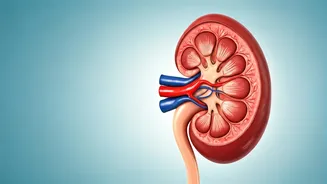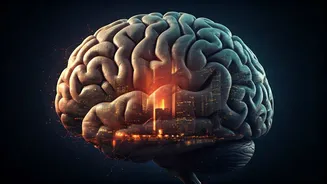Kidney Health Risks
According to the analysis by a top cardiologist, there are five major dangers to kidney health that people should be aware of. Understanding these threats
and taking appropriate actions can significantly improve kidney function. Recognizing these risks is the first step toward better kidney care. This article provides a detailed look at each of these dangers, offering practical advice on how to mitigate them. By gaining a better understanding of these risks, individuals can take proactive steps to safeguard their kidneys and maintain their overall health. The goal is to provide a comprehensive guide on how to protect this vital organ.
NSAIDs and Kidneys
Nonsteroidal anti-inflammatory drugs (NSAIDs) pose a significant threat to kidney health. Commonly used to alleviate pain and reduce inflammation, NSAIDs can cause kidney damage, especially with prolonged use. They can diminish blood flow to the kidneys, potentially leading to acute kidney injury or chronic kidney disease. It's crucial to use NSAIDs cautiously and discuss with a healthcare provider about potential risks, especially if you have pre-existing kidney conditions. Healthcare professionals may suggest alternative pain management strategies or regular kidney function checks for people who frequently use NSAIDs. Always consult a doctor before using these medicines if you have kidney problems.
Dehydration Concerns
Dehydration is another significant danger to kidney health. Insufficient water intake can reduce blood flow to the kidneys, which is essential for proper function. This can result in acute kidney injury or worsen any existing kidney problems. Ensuring sufficient fluid intake is essential to help the kidneys to effectively eliminate waste products. Individuals should aim to drink enough water throughout the day, especially during warmer weather or after strenuous physical activity. This proactive habit can help maintain healthy kidney function and prevent complications related to dehydration. Regular water intake supports overall well-being, protecting the kidneys from avoidable harm.
Salt's Negative Impact
Excessive salt intake can harm the kidneys. High salt consumption increases blood pressure, which puts added stress on the kidneys, potentially leading to kidney damage over time. It can worsen existing kidney problems and contribute to chronic kidney disease. Limiting sodium intake by watching out for processed foods and dining out less frequently will prove beneficial. Reading food labels carefully and preparing meals at home using fresh ingredients are also useful strategies. Such changes can effectively reduce the burden on the kidneys and help to maintain healthy blood pressure levels, thus helping to preserve kidney function.
Antibiotics' Effects
Certain antibiotics can also damage the kidneys. Some medications can cause kidney injury, especially when taken in high doses or for extended periods. It is critical to take antibiotics only when prescribed and to follow the prescribed dosage instructions. If you have any history of kidney problems, be sure to inform your doctor before beginning antibiotics. This information allows healthcare providers to monitor kidney function closely and adjust treatments as needed. Proper use of antibiotics minimizes the potential for kidney damage and helps to maintain the health and proper function of your kidneys.
Intravenous Contrast Dyes
Intravenous contrast dyes used in imaging tests pose a risk to the kidneys. These dyes are used in procedures such as CT scans and MRIs to enhance the visibility of body tissues. In some people, particularly those with pre-existing kidney conditions, these dyes can cause kidney damage. People should speak to their healthcare provider about this risk. Precautionary steps might involve ensuring adequate hydration before the scan or, in some cases, adjusting the dosage. Being aware of the risks and taking appropriate precautions is vital. Careful consideration and open communication with medical professionals can help to protect kidney health during imaging procedures.














